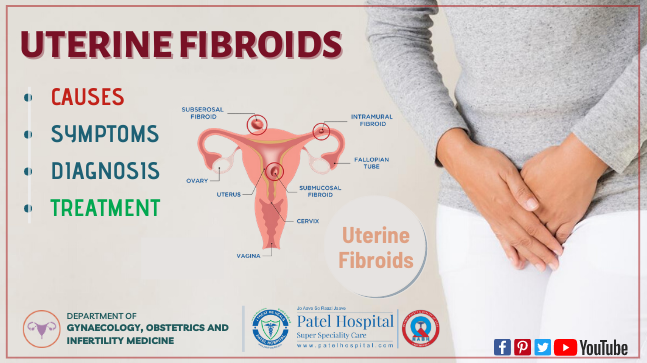Dr. Esha Charaya, MBBS, MD, Consultant Obstetrician and Gynaecologist, Patel Hospital, Jalandhar
Fibroids are noncancerous tumors of the female pelvis which usually arise in the uterus but can be extrauterine too. Most commonly presents in the age group of 35-45 yrs. fibroids are hormone-dependent tumors and shrink in size after menopause. The lifetime risk of having fibroid in a female is 50-70%.
Etiology– these are genetic linked tumors. More common in obese, nulliparous females and those who achieve menarche early.
Symptoms – most commonly these are asymptomatic, detected incidentally on physical examination, and ultrasonography. If symptomatic- symptoms depend on location, number, and size of fibroids.
Symptoms may be failure to conceive, recurrent abortions, menstrual abnormalities, painful menstruation, mass in the abdomen, frequency of micturition, discharge per vaginum, and abdominal pain.
Diagnosis- Ultrasonography, clinical examination, laparoscopy, hysteroscopy, MRI (sometimes to r/o other differentials)
Treatment- depends on the age of the patient, desire for fertility, location of fibroids, number, and patient’s fitness for surgery.
Depending on all factors- these can be managed conservatively, with follow-up ultrasound every 6 monthly.
A sudden rapid increase in size, pain in fibroids usually point towards malignant transformation and in these cases chances of detecting malignancy on usual endometrial biopsy are only 10-15%. The final diagnosis is usually made after hysterectomy.
Medical management is usually a temporary measure that includes hormonal medication & drugs to decrease bleeding. Definite treatment is surgery – which includes- hysterectomy, myomectomy, (open, laparoscopic, hysteroscopic)
Some noninvasive / less invasive methods include- laparoscopic myolysis, uterine artery embolization, MRI guided focused ultrasonography.
Complication and sequelae– fibroids can undergo degeneration- red, calcific, hyaline. Most significant is sarcomatous degeneration. The development of leiomyosarcoma is a very rare thing.



